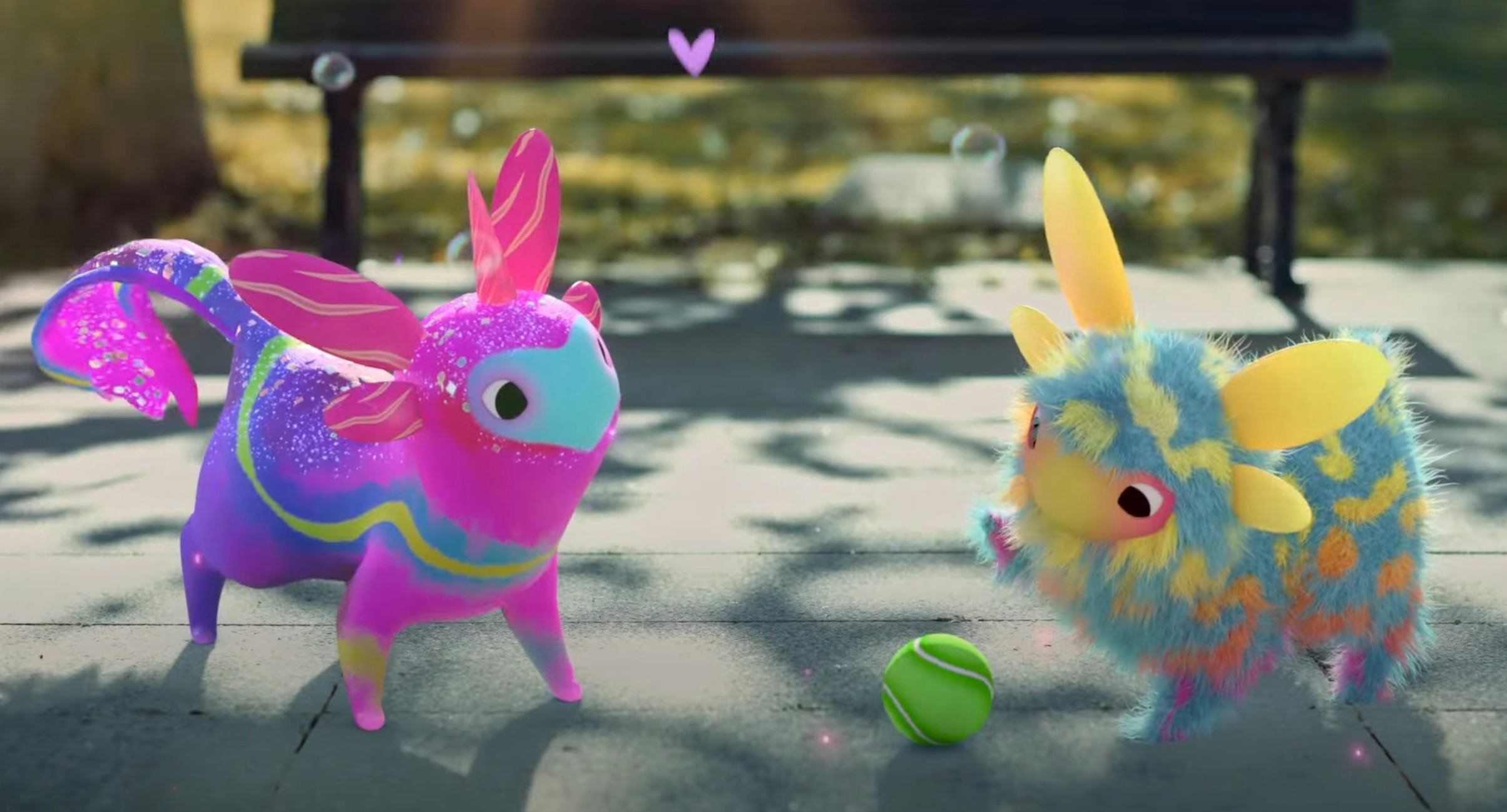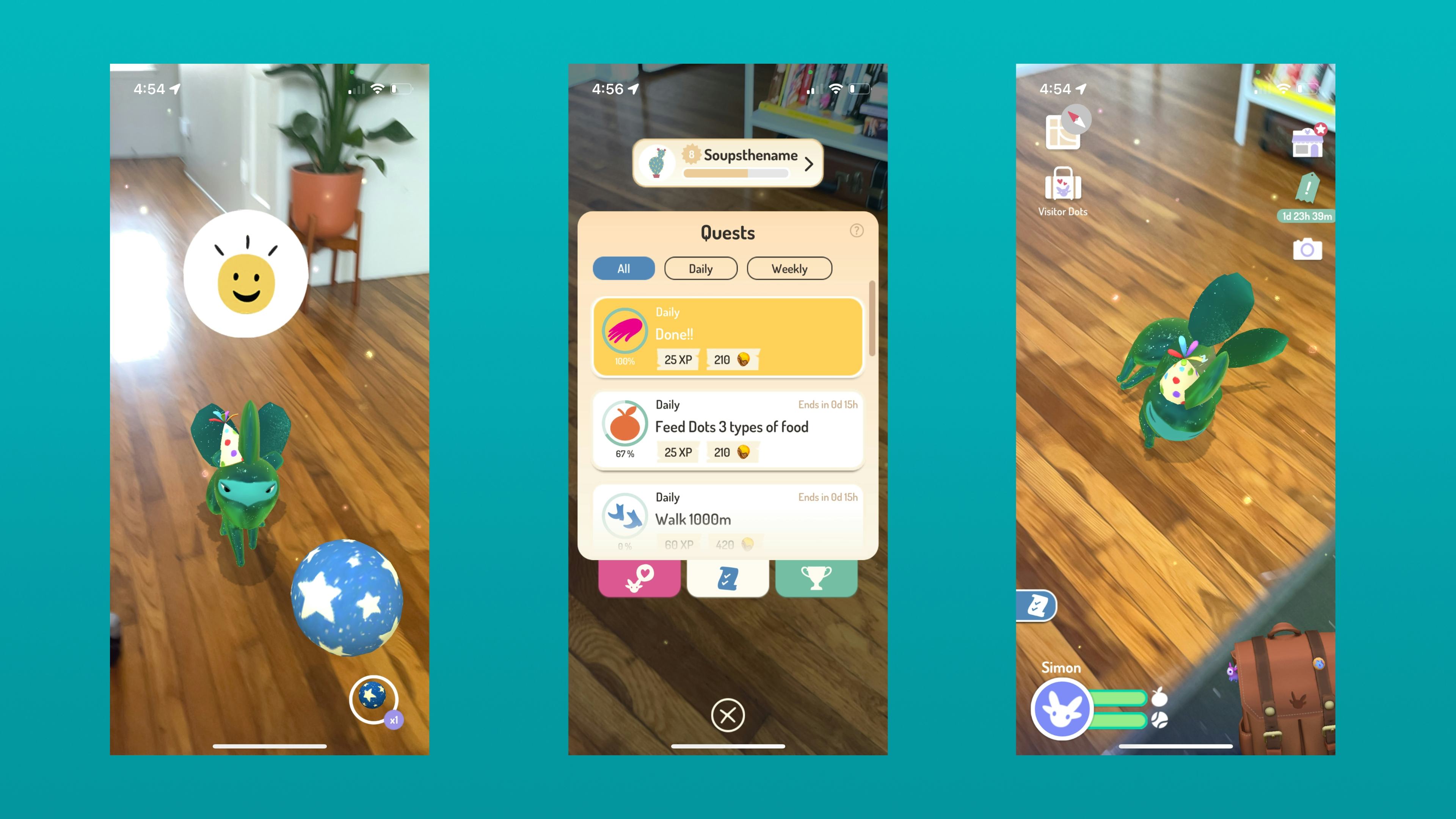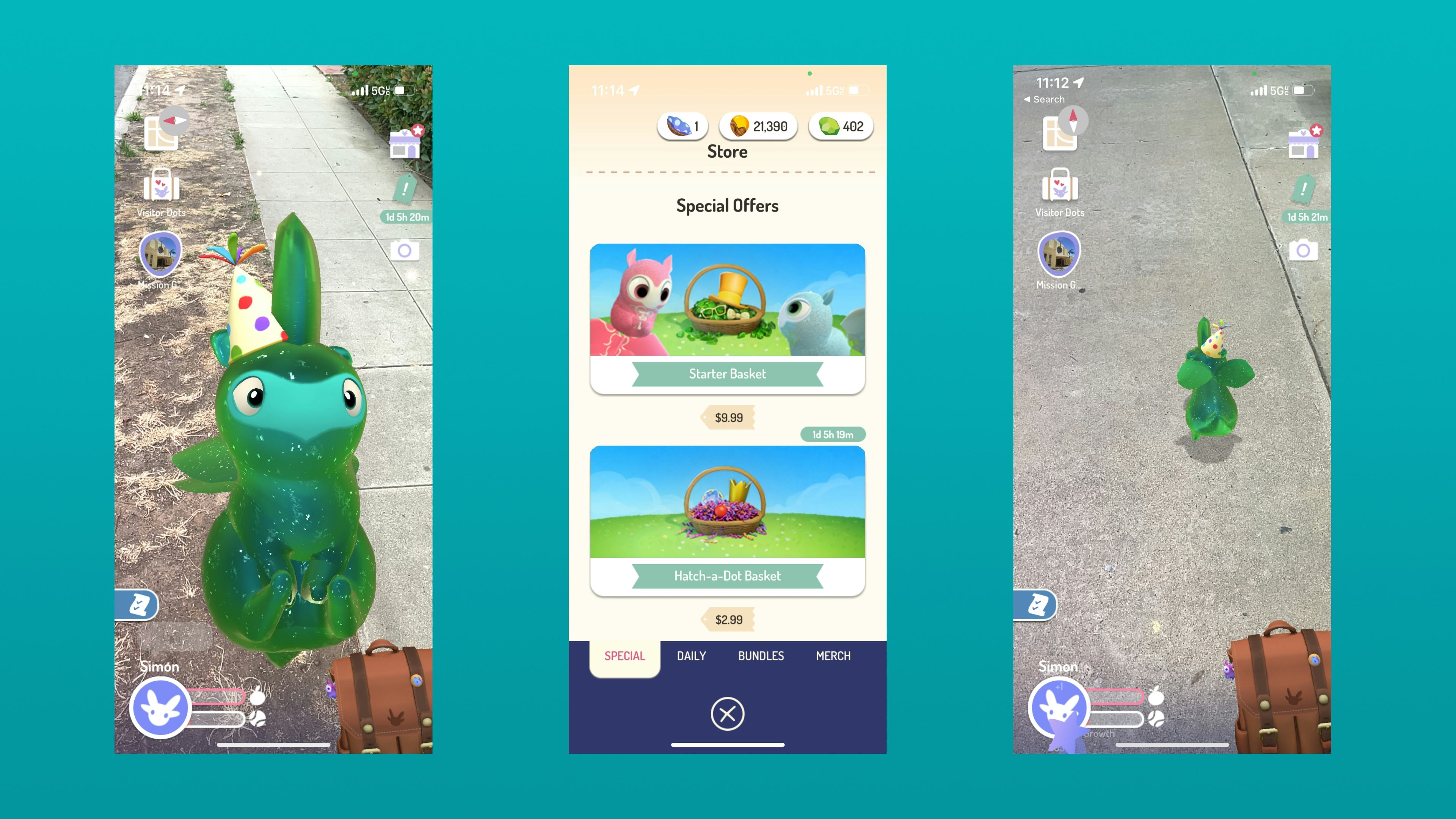
I haven’t been the best father to Simon. Despite the nagging of Peridot’s incessant notifications, it’s been a whole two days since I last checked on my virtual pet.
After logging off work yesterday I dreaded loading up the app, but finally worked up the courage to check. I found Simon sitting glumly in a big green heap, a line drawing of a sad face floating in a thought bubble above his head. He clearly missed me. It wasn’t anything 15 minutes of tossing a few tennis balls around and feeding him sandwiches couldn’t fix, but the fact I felt guilty at all means something, you know?

Peridot is Niantic’s latest augmented reality mobile game, and the first one that hasn’t been based on an existing property like Harry Potter, Transformers, and yes, Pokémon, in ages. It’s technically a pet breeding game, but thanks to years of experimentation on the part of Niantic, it's also a culmination of a lot of groundwork the company’s been laying for years in the field of augmented reality — one that’s also unfortunately burdened with the realities of running a business.
I started the game by choosing one of three eggs, which then hatched into a Dot. There’s a backstory for the Dots — they’re an ancient species of magical creature from thousands of years ago now being cared for and repopulated by the Peridot Keeper Society — but the most important part is they’re cute. Big eyes, soft squishy, uniquely textured bodies, and a playfulness that you’d expect from a puppy. The main thrust of the first half of the game after you hatch your Dot (in my case, Simon) is growing them to adulthood. And there are really only two stats you have to care about — hunger and boredom -- and as long as they’re continually filled your Dot will continue to grow.
Peridot sets this process in the world around you, as AR experiences do. You can pet your Dot by scratching your finger on it, just like scratching your dog with your DS stylus in Nintendogs. If you circle the ground anywhere near your Dot, it'll dive in and pull up food, toys, and other consumables. This is the first place the tech underlying Niantic’s new game rears its head. Peridot can detect what terrain your Dot is standing on (and your phone’s camera is pointed at) and have it dig up thematically appropriate food and toys. Grass usually led to fruit and other plants, and the wood floor in my apartment almost always filled my inventory with sandwiches. I was surprised to learn that those computer vision skills also apply to things your Dot sees in the world around you. If I take Simon on a walk and point my phone at a tree, Simon will scratch on it. He’ll also sniff flowers, and acknowledge dogs if they stand still long enough.
The interactions build from there. I could toss out a sandwich to Simon, and he’d roll on his back trying to eat it, or hold the sandwich out and trace it in a pattern to start teaching Simon a trick. All of the AR objects you toss have weight and in the case of the various balls you can use to play fetch, even the ability to bounce off walls and roll around corners. Even neater, your Dot will chase those balls and disappear around corners, too. The ability to understand 3D space on the fly and know when something should be obscured is something Niantic has been developing for a long time. The company’s “Real World AR Occlusion” demo from 2018 famously used Pikachu weaving through a crowd to show off the technique. Peridot isn’t quite as consistent as the original, and as a half-step, the app displays your Dot’s outline when it’s obscured by something, but when it works, it really works.
The other half of Peridot is breeding. After around two days of raising Simon he was fully grown, ready to produce more Dots, and hopefully share the unique traits he was born with (specifically, bee wings and a banana horn). The “Hatch-A-Dot” process is fairly straightforward, Niantic’s Campfire social network makes it easy to extend a request to other players that might want to breed with your Dot. Walking around with Simon I was also able to “meet” nearby Dots that way and extend invitations to breed that way, too. Once you and another Peridot player agree, the other Dot comes for a visit and they produce a new egg. Then the process starts all over again.
If Peridot were just that simple loop, it would be perfectly enjoyable, if maybe a little too focused on gaming out the genetics of breeding the perfect Dot. But the game itself doesn’t exactly run great. It was never annoying enough to stop me from playing, but navigating menus can be really laggy and the app doesn’t always have a perfect read on distance and where floors actually are. It’s also a real drain on battery life from what I can tell. But more than that, Peridot has a free-to-play quality that can be a real turnoff. So far I’ve been able to play the game without spending any money, but I also haven’t dived head-first into breeding besides trying it once, and that seems to be the most resource-intensive part of the game. Peridot has multiple currencies to earn (or buy with real money) and items to purchase, including consumables like food or nests, which are required for breeding, and accessories. None of them are necessary if you’re willing to engage with the other parts of the game, but they’re frequently offered to you via the in-game interface and notifications.

Since launching on May 9, those free-to-play hooks have been one of the biggest sources of criticisms of the game and one of the factors Bloomberg attributes to its low downloads — just 675,000 between launch and May 13. There’s this unfortunate expectation that any new swing from Niantic will fail because basically everything after Pokémon Go sits in its shadow. To be fair, most of it, including Harry Potter: Wizards Unite, Catan: World Explorers, and Transformers: Heavy Metal, has either been shut down or canceled. The issue clearly isn’t popular intellectual property. It’s hard to fully capture the cultural juggernaut that is Pokémon, but I have to imagine some people feel as strongly about robots or wizards as they do cute monsters. The issue is the meeting of IP and the actual experience of using these apps. While it didn’t at the beginning, Pokémon Go recreates a good portion of the actual gameplay loop of the original console games. An app that gets you out in the world and layers AR creatures over it is a natural fit. Even with variations, that doesn’t connect as cleanly to the other properties Niantic has worked with.
Despite Apple infrequently beating the drum for augmented reality apps on smartphones, they don't feel like the best place to play these games. An iPhone screen, even if they get bigger every year, isn’t the best frame for something that’s trying to represent an alternative or even hidden reality. That’s presumably where AR glasses would come in. Niantic has a lightweight AR headset reference design it’s been developing with Qualcomm, and it seems to work well outdoors, but there’s no sign if it will ever be a consumer product or if Niantic even has a version of its existing games in the works for a form factor other than phones.
And pining for future hardware misses what Peridot gets right. Niantic has essentially synthesized several tech demos into a product that communicates one of the key compelling ideas of augmented reality: persistent virtual objects living in the world around us. Peridot is unfortunately somehow both too ambitious and not ambitious enough in its demonstration of it, but that sense of persistence and awareness is deeply compelling. It’s enough magic tricks all in a row to make you feel like the little creature you’re taking care of could be alive, or at the very least deserves your attention. And it made me feel, at least for the brief time I’ve played, that we could see an enjoyable and even useful AR app in my lifetime.







